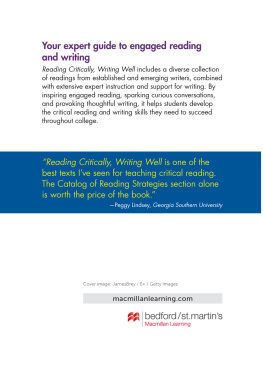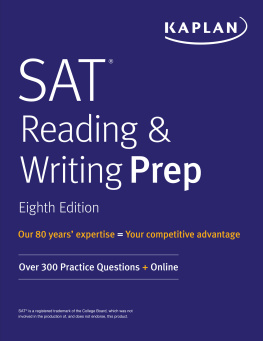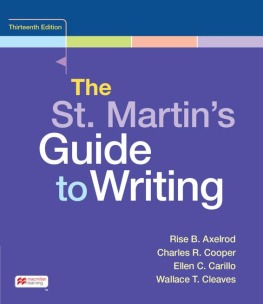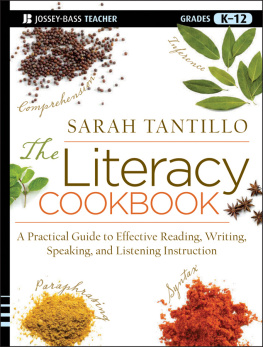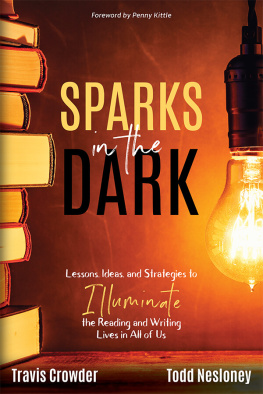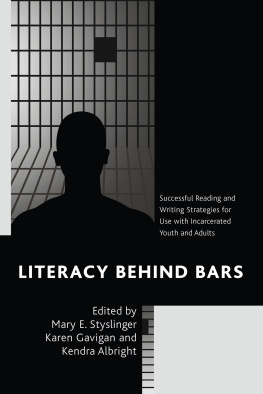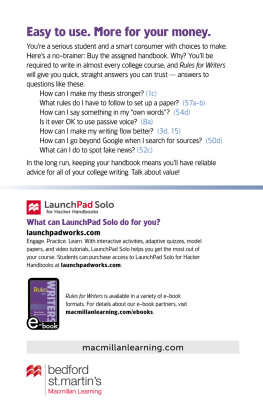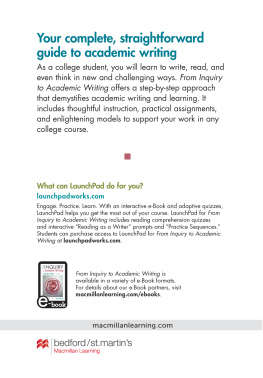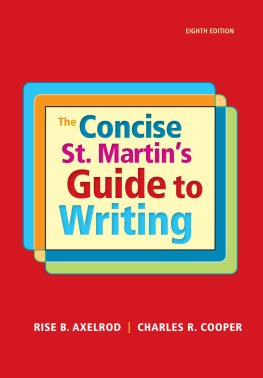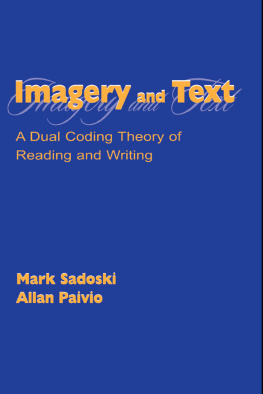Contents
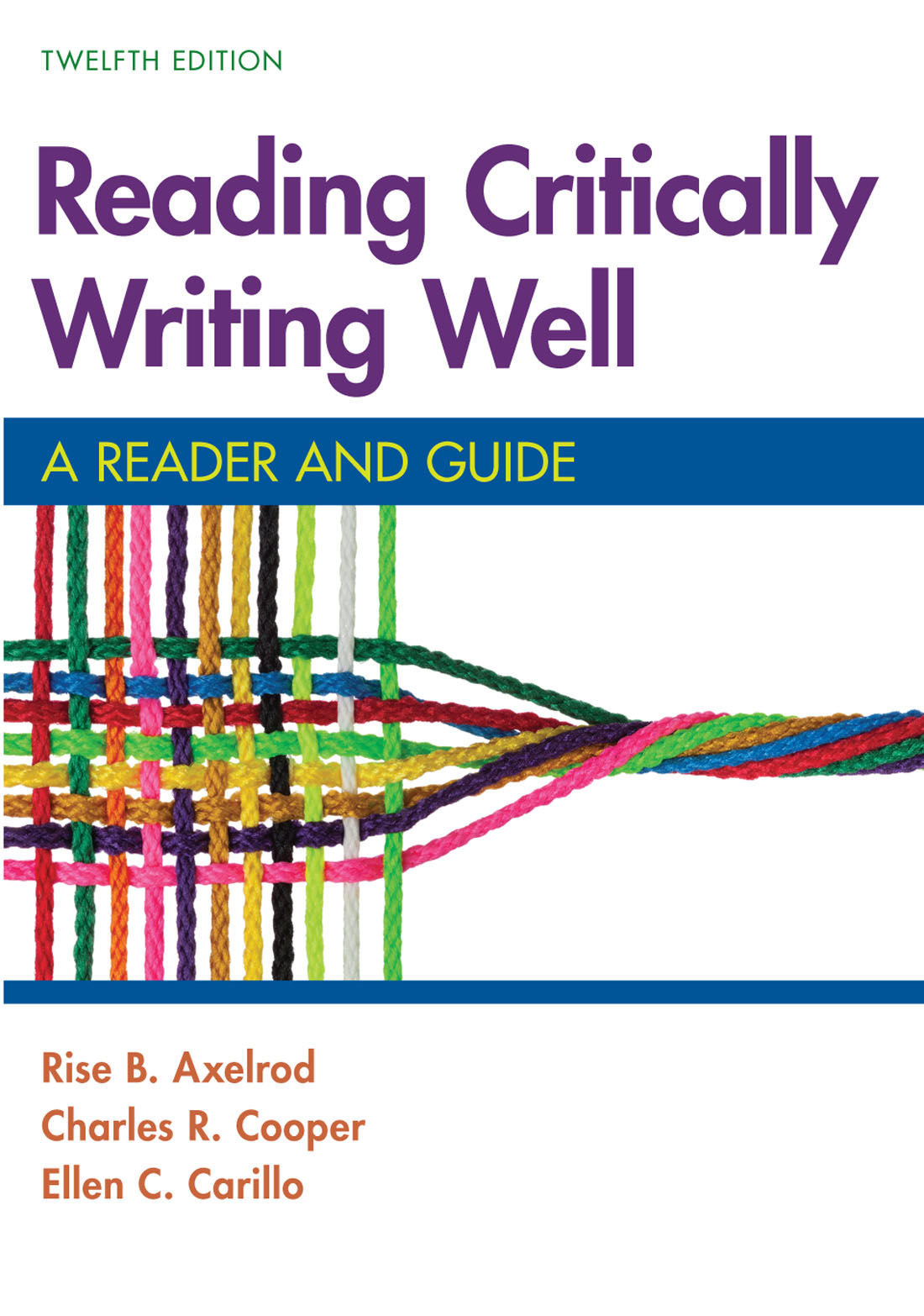
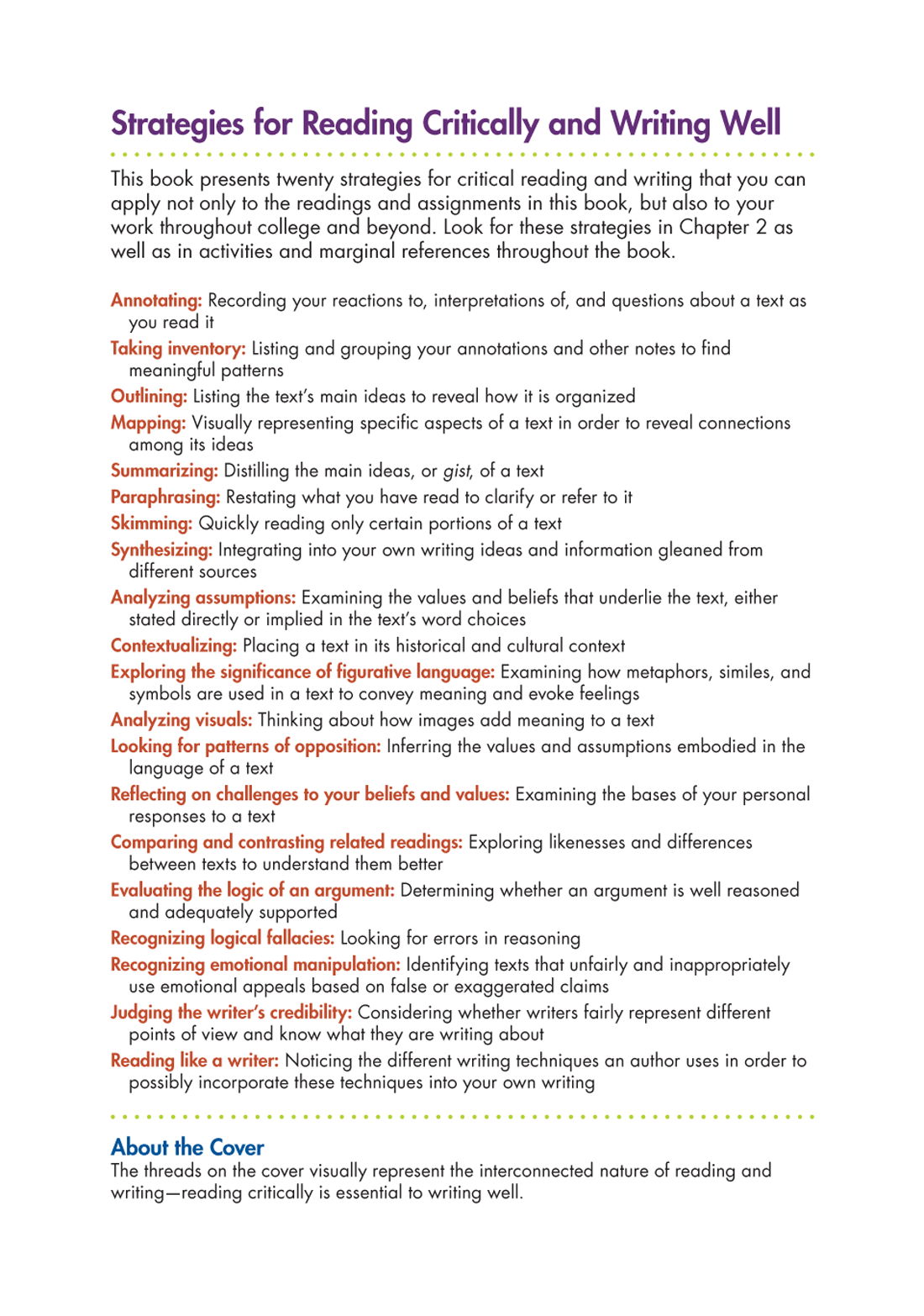
For Bedford/St. Martins
Vice President, Editorial, Macmillan Learning Humanities: Edwin Hill
Executive Program Director for English: Leasa Burton
Executive Program Manager: John E. Sullivan III
Executive Marketing Manager: Joy Fisher Williams
Director of Content Development, Humanities: Jane Knetzger
Senior Developmental Editor: Evelyn Denham
Editorial Assistant: Alex Markle
Content Project Manager: Pamela Lawson
Assistant Director, Process Workflow: Susan Wein
Production Supervisor: Lawrence Guerra
Advanced Media Project Manager: Rand Thomas
Executive Media Editor: Adam Whitehurst
Senior Manager of Publishing Services: Andrea Cava
Project Management: Lumina Datamatics, Inc.
Text Permissions Manager: Kalina Ingham
Text Permissions Researcher: Kristine Janssens, Lumina Datamatics, Inc.
Photo Permissions Editor: Angela Boehler
Photo Researcher: Krystyna Borgen, Lumina Datamatics, Inc.
Director of Design, Content Management: Diana Blume
Text Design: Jerilyn Bockorick/Diana Blume
Cover Design: William Boardman
Cover Image: JamesBrey/E+/Getty Images
Copyright 2020, 2017, 2014, 2011 by Bedford/St. Martins.
All rights reserved. No part of this book may be reproduced, stored in a retrieval system, or transmitted in any form or by any means, electronic, mechanical, photocopying, recording, or otherwise, except as may be permitted by law or expressly permitted in writing by the Publisher.
123456242322212019
For information, write: Bedford/St. Martins, 75 Arlington Street, Boston, MA 02116
ISBN 978-1-319-25473-5 (epub)
Acknowledgments
Text acknowledgments and copyrights appear at the back of the book on , which constitute an extension of the copyright page. Art acknowledgments and copyrights appear on the same page as the art selections they cover.
Preface
Reading Critically, Writing Well is designed for todays students living in an information-saturated culture. When students are taught to read critically to understand, assess, evaluate, and synthesize the texts they encounter they are better prepared not only to succeed in college but to navigate and participate in the world that surrounds them. Students who know how to read critically are also better positioned to write in ways that are influenced by the rhetorical awareness that inflects their reading experiences. Teaching critical reading alongside writing, in other words, allows students to strengthen their abilities as readers and writers simultaneously. As students learn about constructing meaning through the processes of reading and writing, Reading Critically, Writing Well also gives students opportunities to reflect on what they are learning, enabling students to recognize the relationship between their reading and writing practices and to apply what they are learning to other academic courses, as well as to contexts outside of the classroom. No matter their major or career track, todays college students will find practice in Reading Critically, Writing Well for the various kinds of writing done in college:
- Analysis of content and meaning of readings
- Analysis of the rhetorical approach
- Analysis of the kind of writing (genre)
- Writing to invent, inquire, make meaning, and reflect
- Writing in different academic genres
Hands-on activities in Reading Critically, Writing Well give students practice in a range of reading and writing strategies strategies that enhance comprehension, inspire thoughtful response, stimulate critical inquiry, and foster rhetorical analysis. Reading Critically, Writing Well features readings from established, emerging, and student writers in every chapter and covers a wide variety of topics of urgent interest to students in order to inspire engaged reading, spark curious conversations, and provoke thoughtful writing. This new edition gives students more opportunities to practice complex reading and writing strategies, with at least one longer reading in each chapter, new Combining Reading Strategies activities, and a new chapter on multi-genre writing.
Features of Reading Critically, Writing Well
An Inspiring and Practical Introduction to Writing
that students need to succeed in college:
- Curiosity (The desire to know more about the world)
- Openness (The willingness to consider new ways of being and thinking in the world)
- Engagement (A sense of investment and involvement in learning)
- Creativity (The ability to use novel approaches for generating, investigating, and representing ideas)
- Persistence (The ability to sustain interest in and attention to short- and long-term projects)
- Responsibility(The ability to take ownership of ones actions and understand the consequences of those actions for oneself and others)
- Flexibility (The ability to adapt to situations, expectations, or demands)
- Metacognition (The ability to reflect on ones own thinking as well as on the individual and cultural processes used to structure knowledge).
As students complete the reading and writing that this guide supports, they will use the practices of critical analysis, rhetorical sensitivity, and empathy to foster the habits of mind needed to support transfer of writing skills beyond composition courses and ensure success throughout college.
introduces these practices and habits of mind through a sequence of brief reading selections on the topic of curiosity. Each reading selection is accompanied by thought-provoking reading, writing, and discussion activities that engage students in active learning from day one, while at the same time teaching them about a crucial habit of mind that will itself empower their learning throughout college and beyond.
Additionally, introduces the sentence strategies that appear in every chapter. These strategies model effective methods for responding to the readings and for presenting ideas in writing, helping students to see how they can enter the academic conversation across disciplines by situating their own ideas within an existing discourse.
Beyond modeling effective sentence strategies, first models for students how to consider these elements and then through the writing activities gives students the opportunity to practice writing about these elements for themselves.
The chapter concludes with an overview of the writing process, including a helpful reference chart: generating ideas, planning, drafting, getting feedback, revising deeply, editing, and proofreading. This section now includes a complete model student essay that showcases the recursive nature of the writing process. Rather than a model that moves from the initial step of generating ideas to the final step of proofreading in a linear fashion, this model shows a student returning to certain steps throughout the writing process, underscoring that recursivity is an important and productive aspect of the writing process.

